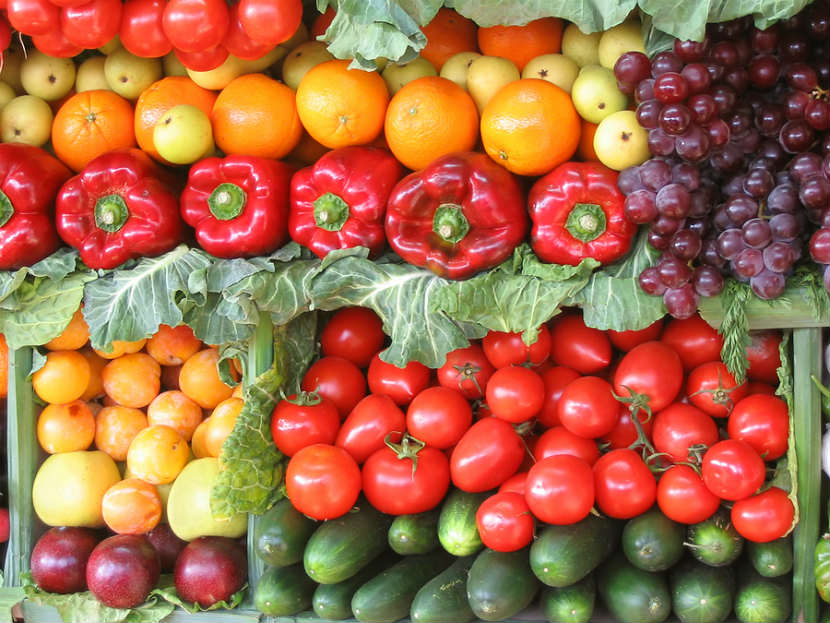Phytonutrients – Nature’s Natural Defense
UnlockFood.ca
Phytonutrients are natural compounds found in plant foods such as vegetables, fruit, whole grain products and legumes. These plant compounds have beneficial effects working with other essential nutrients to promote good health.
“Phyto” means plant
- Phytonutient (pronounced fight-o-nutrient) literally means plant nutrient.
- There are hundreds of phytonutrients that are often referred to as phytochemicals also.
- Common phytonutrients include carotenoids such as lutein, flavonoids, coumarins, indoles, isoflavones, lignans, organosulfures and plant sterols.
Phytonutrients are powerful antioxidants
- Many phytonutrients have antioxidant properties that help prevent damage to cells throughout the body.
- A number of phytonutrients have been shown to reduce the risk of cancer, heart disease, stroke, Alzheimer’s and Parkinson’s disease.
- Experts believe that eating plenty of phytonutrient-rich foods promotes healthy aging.
Other biological roles of phytonutrients
- Phytonutrients may have other bioactive functions for promoting health.
- Some may have positive effects on the immune system and hormones.
- Phytonutrients may also act as antibacterial or antiviral agents.
Phytonutrient rich foods
- Red, orange and yellow vegetables and fruit (such as tomatoes, carrots, peppers, squash, sweet potatoes, peaches, mangos, melons, citrus fruits, and berries)
- Dark green leafy vegetables (such as spinach, kale, bok choy, broccoli, Swiss chard, and romaine lettuce)
- Garlic, onions, chives and leeks
- Whole grain products (such as brown rice, wild rice, quinoa, barley, wheat berries, and whole wheat whole grain breads and whole grain cereals)
- Nuts and seeds (such as walnuts, almonds, sunflower, sesame and flax seeds)
- Legumes (such as dried beans, peas, lentils, soy beans and soy products)
- Tea and coffee (such as green tea, black tea and other herbal teas)
- Dark chocolate
Enjoy the rainbow of fruit and vegetables
- Phytonutrients are responsible for the vibrant colours found in vegetables and fruit.
- For example the phytonutrient lycopene helps give tomatoes and watermelon their red color.
- By enjoying a rainbow of vegetables and fruit everyday, you can make the most of many of the phytonutrients nature has to offer.
Foods first
- No supplement can substitute for all of the benefits of healthy eating.
- The combination of phytonutrients, vitamins, minerals, essential fatty acids and fibre in food is complex. It’s likely the interaction of these compounds found in whole foods that is responsible for their many health benefits.
- So eating a healthy variety of foods every day including plenty of phytonutrient-rich plant foods is best for your health.
Phytonutrient rich foods
- Experts agree that the phytonutrients in plant based foods may help prevent disease and promote health.
- Aim to include a variety of plant based foods such as vegetables and fruit, whole grains, nuts, seeds and legumes in your meals and snacks every day.
- You can benefit from plenty of phytonutrient rich foods by Eating Well with Canada’s Food Guide and making wise choices.
Try these phytonutrient-rich meal and snack ideas
- Breakfast: Muesli-type oat cereal with dried fruit, nuts and seeds.
- Lunch: A spinach salad with mandarin oranges and almonds.
- Dinner: Vegetarian bean chili with a crusty whole grain roll.
- Snack: A tall cold glass of orange, berry, banana smoothie.
Last Update – January 3, 2019

